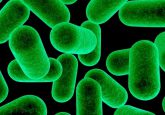Depression increases the risk of cardiovascular disease

Depression and stress were discovered to impact cardiovascular disease and the effectiveness of cholesterol-lowering treatment in a mouse study.
Preliminary results from the first study to use a chronic stress and depression mouse model to investigate the impacts of cholesterol-lowering treatment have provided insight into how depression and prolonged, severe stress can increase cardiovascular disease risk in mice.
The results were presented by Özlem Tufanli Kireccibasi, NYU Grossman School of Medicine (NY, USA), at the American Heart Association’s Vascular Discovery: From Genes to Medicine Scientific Sessions 2022 (Seattle, WA, USA, 12th-14th May).
The researchers fed a cholesterol-rich diet to low-density lipoprotein receptor (LDLr) deficient mice for 24 weeks. LDLr deficient mice are unable to take up low-density lipoprotein (LDL) cholesterol from the bloodstream and as a result, are prone to developing arterial plaques and cardiovascular disease.
In order to produce a depression-like phenotype in the mice, researchers performed a repeated social defeat stress protocol. This involved placing the mice in a shared living space with larger, aggressive mice for short periods of time over 10 days. By utilizing behavior testing, the stressed mice were classified as susceptible (depressed) or resilient (effective at coping with stress).
Following this classification, susceptible mice and control mice (who were not exposed to stress), were treated with LDL-lowering medication for 3 weeks, analogous to cholesterol treatment in humans.
 I spy with my little eye developments towards a color-sensing ‘electric eye’
I spy with my little eye developments towards a color-sensing ‘electric eye’
Researchers make progress towards an ‘electric eye’ using a novel method to stack semiconducting materials.
During post-treatment analysis of inflammatory cell levels in plaques, susceptible mice exhibited: a 50% greater rise in immune cells within plaque, twice the level of monocytes in the blood, and an 80% increase in immune-cell precursor levels in bone marrow compared with the control group. Additionally, less collagen was observed in plaques of depressed mice, and the lipid levels were lowered equally in both groups after treatment with LDL-lowering medication.
“The major finding is that repeated stress and the physiological and behavioral effects of hostile interactions (social defeat) appear to prevent the full beneficial changes to plaques that should be induced by lipid-lowering medications,” described Tufanli.
Building upon these findings, the team investigated whether these effects are mediated as a result of immune-progenitor bone marrow cells being reprogrammed. To do so, researchers transplanted bone marrow of susceptible and control mice into LDLr deficient mice, before providing the mice with a high-cholesterol diet for 24 weeks.
Mice transplanted with bone marrow from susceptible mice exhibited a 16% and a 50% greater increase in immune-cell precursors in bone marrow and circulatory inflammatory monocytes respectively, compared with mice receiving control bone marrow. No difference was observed in plaque size; however, plaques contained 23% more inflammation in susceptible bone marrow transplanted mice. Overall, the results indicate that chronic stress leads to the reprogramming of bone marrow resulting in more inflammatory plaques.
“These findings may indicate more attention to mental health is needed to fight cardiovascular disease, particularly for people with depression or chronic stress. In the next decades, new therapies for atherosclerosis should focus on altering immune responses, inhibiting inflammation and promoting pathways of plaque resolution. These therapies have great potential for benefiting people with cardiovascular disease, and likely particularly in those with depression,” Tufanli added. “We will conduct the same analyses as this study to determine whether it is exposure to stress or the susceptibility to it that instigates changes in plaque leading to lessening or worsening of plaque.”





